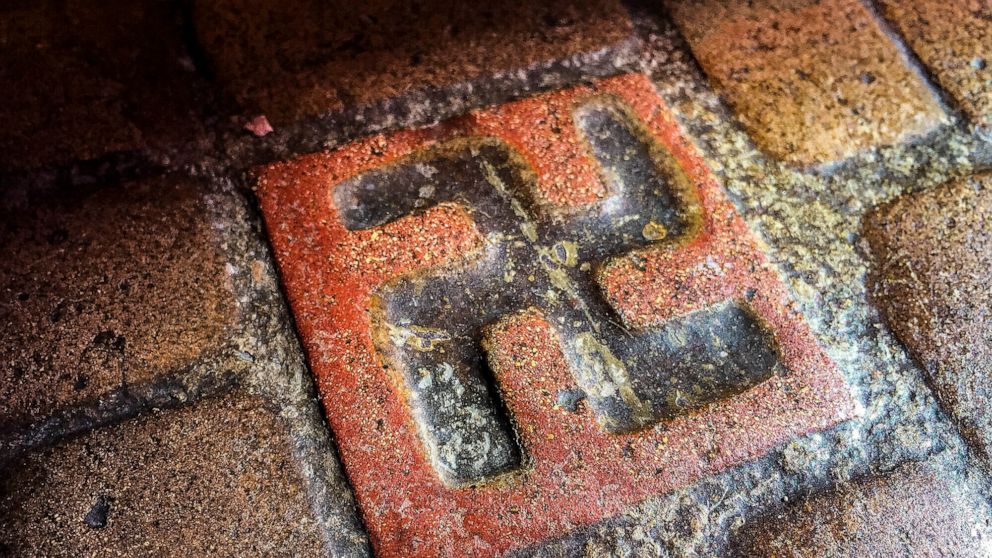Sheetal Deo was shocked when she got a letter from her Queens apartment building’s co-op board calling her Diwali decoration “offensive” and demanding she take it down.
“My decoration said ‘Happy Diwali’ and had a swastika on it,” said Deo, a physician, who was celebrating the Hindu festival of lights.
The equilateral cross with its legs bent at right angles is a millennia-old sacred symbol in Hinduism, Buddhism and Jainism that represents peace and good fortune, and was also used widely by Indigenous people worldwide in a similar vein.
But in the West, this symbol is often equated to Adolf Hitler’s hakenkreuz or the hooked cross – a symbol of hate that evokes the trauma of the Holocaust and the horrors of Nazi Germany. White supremacists, neo-Nazi groups and vandals have continued to use Hitler’s symbol to stoke fear and hate.
Over the past decade, as the Asian diaspora has grown in North America, the call to reclaim the swastika as a sacred symbol has become louder. These minority faith communities are being joined by Native American elders whose ancestors have long used the symbol as part of healing rituals.
Deo believes she and people of other faiths should not have to sacrifice or apologize for a sacred symbol simply because it is often conflated with its tainted version.
“To me, that’s intolerable,” she said.
Yet to others, the idea that the swastika could be redeemed is unthinkable.
Holocaust survivors in particular could be re-traumatized when they see the symbol, said Shelley Rood Wernick, managing director of the Jewish Federations of North America’s Center on Holocaust Survivor Care.
“One of the hallmarks of trauma is that it shatters a person’s sense of safety,” said Wernick, whose grandparents met at a displaced persons’ camp in Austria after World War II. “The swastika was a representation of the concept that stood for the annihilation of an entire people.”
For her grandparents and the elderly survivors she serves, Wernick said, the symbol is the physical representation of the horrors they experienced.
“I recognize the swastika as a symbol of hate.”
New York-based Steven Heller, a design historian and author of “Swastika: Symbol Beyond Redemption?”, said the swastika is “a charged symbol for so many whose loved ones were criminally and brutally murdered.” Heller’s great-grandfather perished during the Holocaust.
“A rose by any other name is a rose,” he said. “In the end it’s how a symbol affects…
Click Here to Read the Full Original Article at ABC News: US…

